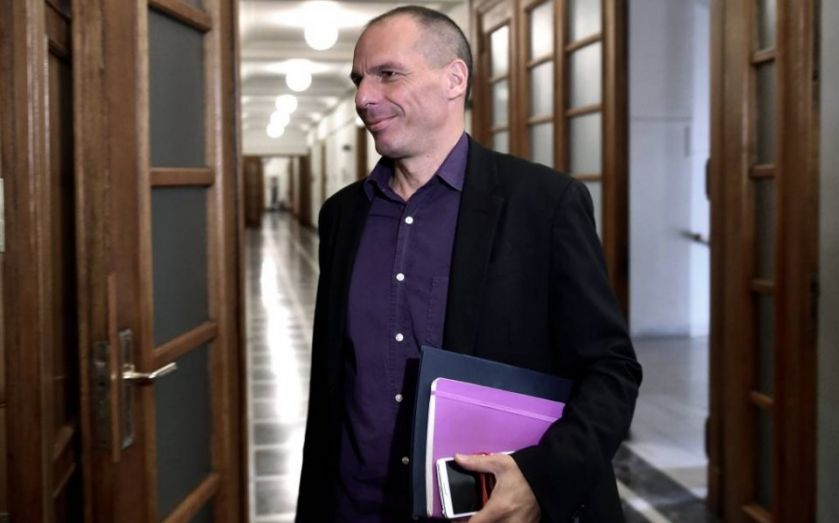Eight takeaways from Yanis Varoufakis’ submission to Greece’s lenders

It was only a matter of time, but the six-page document submitted by the Greek government to Eurozone leaders this morning showing the measures it plans to take in return for a four-month extension to its bailout deal has been leaked online.
The FT published a copy of the document, and the contents are enlightening. Timings and costings are vague – but in other aspects, it's incredibly detailed.
Here are eight key takeaways from the document:
1. Tsipras still wants to sneak in "social justice"
This document has been seen by critics as a concession to Greece's lenders. Some have even suggested Yanis Varoufakis, the country's finance minister, is backpedaling on some of the election promises made by Syriza leader, and Greece's new prime minister, Alexis Tsipras. But he has managed to sneak in some voter-pleasing policies – not least, replacing tax code exemptions with "social justice enhancing measures", as well as several measures to solve Greece's "humanitarian crisis".
2. Greece is an old-fashioned place
Over six pages, the document uses the word "modernise" six times – income tax, tax payment procedures, its tax administration, the pension system, the public administration and its bankruptcy laws are all in need of modernisation, Varoufakis admits.
3. Government expenditure is still much higher than it should be
Despite measures imposed by the troika back when its bailout was first agreed, non-salary and non-pension expenditures still account for 56 per cent of total public expenditure, which Varoufakis himself admits is "astounding".
4. There are a lot of pensioners in Greece
Loopholes and incentives give rise to an "excessive rate" of early retirements, says the document – particularly in the country's banking and public sectors.
5. Fuel and tobacco smuggling are a huge problem
Indeed, tackling smuggling is one of the first measures mooted in the document. Later, it suggests money laundering is also an issue that needs to be tackled.
6. Varoufakis has no patience for "loss-making media organisations"
Varoufakis promises to "activate immediately the current (though dormant) legislation that regulates the revenues of media… ensuring (through appropriately designed auctions) that they pay the state market prices for frequencies used, and prohibits the continued operation of permanently loss-making media outlets (without a transparent process of recapitalisation". Ouch.
7. There is such a thing as "strategic default"
The document sets out the difficulties of striking a balance between avoiding "auctions of the main residence of households below a certain income threshold while punishing strategic defaulters". The idea is to prevent a further fall in house prices, although it does suggest taking measures to "support the most vulnerable households".
8. Syriza is not completely anti-privatisation
Although a strong anti-privatisation agenda was part of the reason Syriza won the election, Varoufakis pledges "not [their underlines, not ours] to roll back privatisations that have been completed". That's a massive concession to Greece's lenders – it could be seen by some of Syriza's voters as going back on its promises.
In fact, Varoufakis' lack of commitment to scrap privatisations altogether is notable. There's a commitment to "review privatisations that have not yet been launched, with a view to improving the terms so as to maximise the state's long term benefits" – but that's as far as he's willing to go.